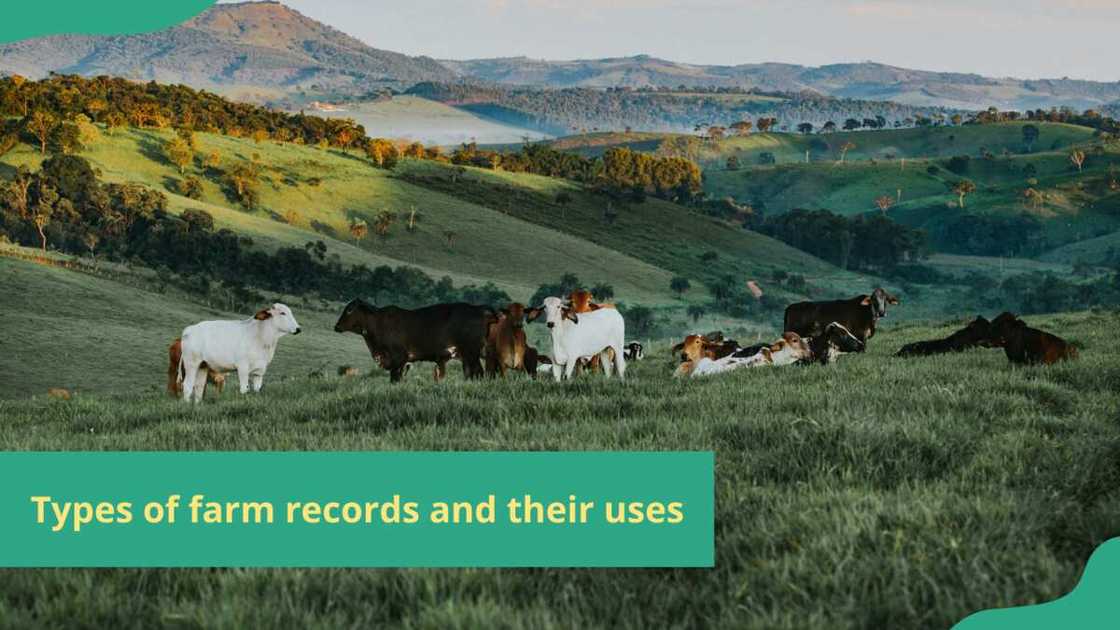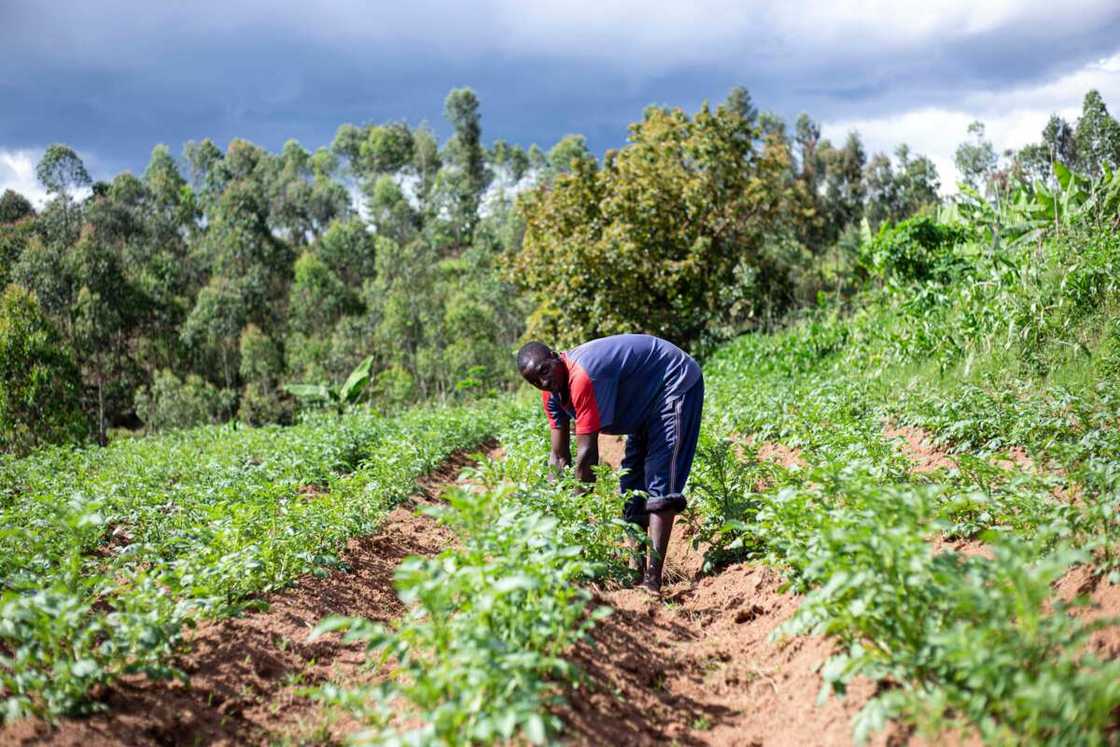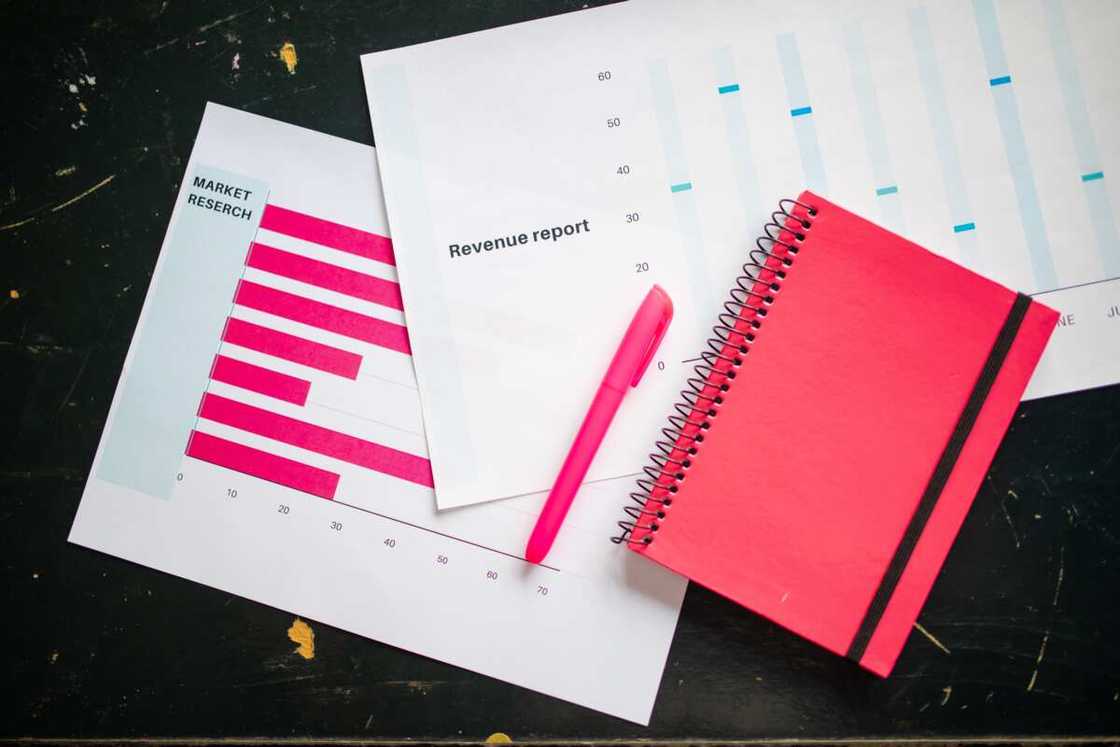Types of farm records and their uses in agriculture: The complete guide
Small and large-scale farmers should use record-keeping documents to track finances, workers' schedules, farm inputs, yield, etc. These financial and non-financial documents help farmers know whether their projects are growing or declining. With these agricultural records, the farmers can detect the loopholes causing losses and make better farm management decisions to avoid potential failures. This article shares the different types of farm records you should use to manage your agricultural projects.

Source: UGC
Commercial agriculture estates in Nigeria can make you a millionaire if you handle finances, workers, and other resources you have on the farm efficiently. Therefore, you should use different types of farm records to manage your agricultural projects better.
What is a farm record?
A farm record is a financial or non-financial document containing data about your farming operations. These records help you manage your workers, maintain your farm tools/machinery, budget for crop and animal supplies like agrochemicals, seeds, and fertilizers, and monitor your yields, deadstock, financial expenses, profits, and losses.
What are the different types of farm records?
A farm record is a set of data documents containing information about your farm activities, yields, machinery, expenses, profits, losses, etc. The documents help the farm owner track and manage daily farm operations, the money they spend on the farm, the revenue they make from the farm, the profits and losses, and the materials/resources they use (inventory). Below are the different types of farm records and summarized explanations about their uses:
1. Daily farm activity log/journal
A farm journal or farm-use log registers information about important activities workers do on the farm daily. The records assist the farm owner/manager in tracking time schedules for past activities and planning new time schedules for future activities.
For example, you can record the day and time you prepared the soil, added manure, sowed seeds, the number of plots/hectares planted, plant species planted, weeding, pruning, sprayed pesticides, irrigation, harvesting, storing, etc.
Suppose you have animals and birds, use a farm journal to record the day and time you sprayed them with pesticides, vaccinated, and dewormed them, when to feed and give them water, clean the animal's barns, sheds, etc., isolate sick animals, time for milking, egg collection, sheep sheering, etc.

Source: UGC
2. Workers' log
The farm owner or manager uses the payroll and labor document to know the number of employees on the farm, their work schedules (days off, reporting time, sign-out time, etc.), phone numbers, productivity, salaries, staff turnover rate, and so on. If you have a few workers whose working schedules you can monitor efficiently, use a simple payroll instead of a complicated workers' log.
3. Farm equipment and inventory book
The farm equipment and inventory contains information about the number/quantity of crops and livestock on the farm, equipment/tools (items the staff needs, e.g., gloves, boots, masks, machetes, etc.), machinery, fuel consumption, storage bags/containers, etc.
These records help you to budget for the number of items the staff needs and farming equipment/tools/machinery that need maintenance, repairs, and replacement. Moreover, you will know the number of animals ready for sale.
4. Agricultural input log
The agricultural input log keeps track of agricultural inputs you use on the farm, e.g., fertilizers/manure, water, seeds, agrochemicals like pesticides and animal vaccines, animal feeds, etc.
Fill in data about the amount of each item bought, the amount used daily, and the remaining amount. The document should also contain the expiry dates of agrochemicals, fertilizers, etc. The data will help you know when to buy more crop/livestock supplies and agricultural inputs.

Source: UGC
5. Animal feeds log
Instead of recording your animal feeds with other farm inputs in the agricultural input log, you can create a separate animals feeds log.
The animal feeds log helps you keep track of different feeds your animals need, the amount consumed daily, the quantity in stock, the quantity/quality to purchase, and when to buy the new feeds. The records also help determine feeds not well-tolerated by the animals and avoid repurchasing them.
6. Yields and deadstock inventory
The production and deadstock inventory tracks the quantity of farm produce and deadstock (the amount that remains after you have sold the produce). For example, you can record the number of eggs or liters of milk collected daily, bags or kilograms of crops harvested, etc.
Depending on how you collect the farm's produce, you can record the produce and deadstock quantity daily, weekly, monthly, or annually. Moreover, separate the production and deadstock inventories for livestock and crops and have separate inventories for each crop or livestock you have on your farm.
7. Cash and payments book
The farm expenditure book records the money you spend to buy all the machinery, tools, and crop/animal supplies. You can add payroll information to this book if you only have a few employees. You might also not need a separate payroll book for temporary employees.
8. Sales records
This farm records document contains the money you make from selling your farm produce (income). From this data, you can calculate your profits daily, weekly, and monthly, depending on how often you sell your produce. After that, transfer the profits and loss data to the profit and loss book.
9. Profit and loss book
The financial document summarizes the revenues, costs, and expenses incurred during a specified period. It shows your total profits and losses at the end of every production period (quarterly, semi-annually, or annually). You should review the records frequently to know your farming projects' financial progress.

Source: UGC
How many types of farm records do we have?
There are six major farm records types: cultivation, farm input, labor/employees, machinery, production, and financial records.
What are the types of farm records?
All farm records can be categorized under four main groups:
- Cultivation (daily farm activity log/journal)
- Farm input records (animal feeds log and agricultural input log)
- Labor records (workers' log)
- Production records (yields & deadstock inventory).
- Machinery records (farm equipment and inventory book)
- Financial records (cash and payment book, sales records, and the profit and loss book)
What are the different types of farm records?
The main types of farm records farmers need include:
- Daily farm activity log/journal
- Animal feeds log
- Agricultural input log
- Workers' log
- Yields & deadstock inventory
- Farm equipment and inventory book
- Cash and payment book
- Sales records
- Profit and loss book

Source: UGC
What is the importance of farm records?
Record keeping is crucial for proper farm management and helps you improve in areas where the farm is not doing well. These documents also have more benefits, as listed below:
- The animal feeds log helps the farmer to budget for animal feeds.
- The agricultural input log helps the farmer to budget for supplies like animal feeds, agrochemicals, water, fertilizers, seeds, etc.
- The farm equipment and inventory book helps you budget for farming equipment/tools/ machinery that need maintenance, repairs, and replacement.
- The workers' log helps you monitor the working schedules of your farm employees and budget for their salaries.
- The yields and deadstock inventory help farmers know how much produce they get from the farm. With these records, you can find ways to increase the produce and reduce wastage (deadstock).
- The cash and payment book helps the farmer monitor the farm's financial expenses, limit unnecessary costs, and increase expenses where needed.
- The sales records help the farmer know the produce in demand and invest more in them.
- The daily farm activity log/diary helps the farmer properly plan the best time for future activities like planting, weeding, harvesting, vaccinating livestock, etc.
- The yields and deadstock inventory, cash and payment book, sales records, and profit and loss book are important when you need agricultural loans from financial institutions.
How many types of records are normally kept on the farm?
The number of record-keeping documents a farmer requires depends on whether they are large or small-scale farmers, their farming system, the animals/crops they deal with, and other factors.
What are the methods of farm record keeping?
You can use the manual paper system or a computerized record-keeping software. Most large-scale farmers hire accountants and financial experts to do the record-keeping work.
Most farmers in Nigeria only use financial books and documents. Financial documents are not enough to run an agricultural project project efficiently. It would help if you had different types of farm records, including documents unrelated to money. Today, these financial and non-financial documents are automated software. After manually filling in the data, you can use the software to analyze the data automatically and generate reports that can help you make better project decisions.
Legit.ng published a list of Nigeria's top 20 investment platforms. With this biting economy, you should increase your investment portfolio to make money.
You can only achieve financial freedom if you invest wisely. The article helps you know profitable opportunities in different economic sectors so that you can research more about them.
Source: Legit.ng

Cyprine Apindi (Lifestyle writer) Cyprine Apindi is a content creator and educator with over six years of experience. She holds a Diploma in Mass Communication and a Bachelor’s degree in Nutrition and Dietetics from Kenyatta University. Cyprine joined Briefly.co.za in mid-2021, covering multiple topics, including finance, entertainment, sports, and lifestyle. In 2023, she finished the AFP course on Digital Investigation Techniques. She received the 2023 Writer of the Year Award. In 2024, she completed the Google News Initiative course. Email: cyprineapindi@gmail.com

Peris Walubengo (Lifestyle writer) Peris Walubengo has vast experience in search engine optimization through digital content generation, research, editing, and proofreading. She joined Legit.ng in April 2022 and completed the AFP course on Digital Investigation Techniques. You can email her at perisrodah254@gmail.com.

